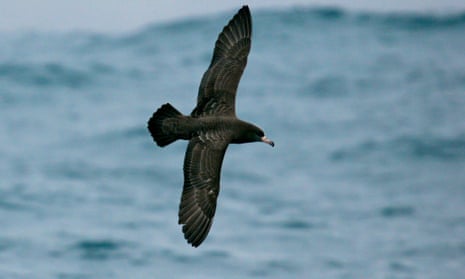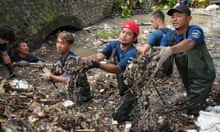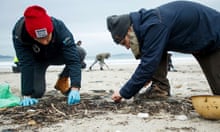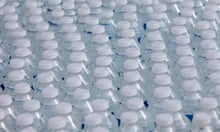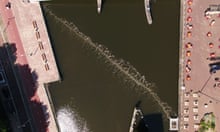A new disease caused solely by plastics has been discovered in seabirds.
The birds identified as having the disease, named plasticosis, have scarred digestive tracts from ingesting waste, scientists at the Natural History Museum in London say.
It is the first recorded instance of specifically plastic-induced fibrosis in wild animals, researchers say.
Plastic pollution is becoming so prevalent that the scarring was widespread across different ages of birds, according to the study, published in the Journal of Hazardous Materials.
Young birds were found to have the disease, and it is thought chicks were being fed the plastic pollution by parents accidentally bringing it back in food.
Scientists, including the Natural History Museum’s Dr Alex Bond and Dr Jennifer Lavers, studied flesh-footed shearwaters from Australia’s Lord Howe Island to look at the relationship between levels of ingested plastic and the proventriculus organ – the first part of a bird’s stomach.
They found that the more plastic a bird had ingested, the more scarring it had. The disease can lead to the gradual breakdown of tubular glands in the proventriculus. Losing these glands can cause the birds to become more vulnerable to infection and parasites and affect their ability to digest food and absorb some vitamins.
Researchers called the fibrotic disease plasticosis to make it clear that it was caused by plastic in the environment.
When birds ingest small pieces of plastic, they found, it inflames the digestive tract. Over time, the persistent inflammation causes tissues to become scarred and disfigured, affecting digestion, growth and survival.
Natural materials found in the stomachs of birds, such as pumice stones, did not cause the same problems, leading scientists to label this a specifically plastic-caused disease.
Bond, principal curator in charge of birds at the Natural History Museum, said: “While these birds can look healthy on the outside, they’re not doing well on the inside. This study is the first time that stomach tissue has been investigated in this way and shows that plastic consumption can cause serious damage to these birds’ digestive system.”
after newsletter promotion
Though the scientists studied only one species of bird in one part of the world, they believe it is likely that more species are affected, and say more research is needed to find out how widespread plasticosis is.
They say the exposure of all organisms to plastic is inevitable, because plastic emissions are increasing and plastic pollution is becoming prevalent in all environments globally.
As this problem has only emerged in recent decades, it has not been widely studied. The researchers said: “Further, the ingestion of plastic has far-reaching and severe consequences, many of which we are only just beginning to fully document and understand.”
